Post-Arrival Services
Actus provides top rated post-arrival services in Ireland. Whether you’re relocating for work, study, or personal reasons, our experienced team offers the support you need to settle comfortably in your new environment.
The Post-Arrival Process
If you are from a country outside the European Union, UK or Switzerland, and come to Ireland to work, study, live or join family for more than 90 days, you must register. If you live in County Dublin, Kildare, Meath, Wicklow, Cork or Limerick – your first registration is with the Immigration Service Delivery (ISD) in Dublin. If you live outside these areas your registration is carried out by your local GNIB. All registration renewals are now carried out online by the ISD.
You will be issued with the correct stamp in your passport and an Irish Residency Permit, IRP card. This card/ stamp is issued for a stated period and is renewable.
Our experienced and trusted post-arrival services team at Actus can help guide you through this process.
The stamp given depends on your status in Ireland, please see below the usual stamp types we deal with:
The Stamp 1
- Employment Permit Holders are issued with a Stamp 1 – This stamp indicates permission to work in Ireland. It is also used to facilitate those operating a business in Ireland.
The Stamp 1A
- If you have permission for full time, paid accountancy training (with a named organization such as CPA Ireland, ICAI or regulated by the IAASA and with a training contract with a company based in Ireland) for a specified period, you will be issued with a Stamp 1A.
The Stamp 1G
- The Spouse / de facto partner/ civil partner of the Holder of a CSEP, GEP, ICT or a Researcher in the State on a Hosting Agreement will be issued with a Stamp 1G– it allows the holder to work in Ireland.
- The Stamp 1G is also issued under the Third Level Graduate Scheme, if you have graduated in Ireland it gives you permission to work in Ireland.
The Stamp 2 & 2A
- The Stamp 2 and 2A are for full time students.
The Stamp 3
- The Spouse / de facto partner/ civil partner/ qualifying children of some employment permit Holders, Volunteers and Ministers of Religion are given the Stamp 3 to allow residence in Ireland.
The Stamp 4
- If you have held a CSEP for 2 years (and adhered to the conditions of the permit grant) you will move to a Stamp 4 (applications allowed after 21 months) which allows work and residence in Ireland. The Stamp 4 also facilitates those who have held an employment permit for 5 years or researchers who have been on a hosting agreement for 2 years.
- The Stamp 4 is also used to facilitate the spouses/ de facto partners and civil partners of Irish citizens. Those joining family under EU Treaty Rights are issued a Stamp 4 EU FAM.
The Stamp 5 & Stamp 6
- The Stamp 5 gives permission to stay in Ireland without limits, the Stamp 6 is for Irish citizen with dual- citizenship.
We are happy to chat over any immigration questions and give general guidance about your Post Arrival in Ireland and Stamps.
Please contact us for further details.
Why Partner With Actus for Post-Arrival Services?
Relocating to a new country can be both exciting and challenging. At Actus, we specialise in tailored post-arrival assistance to help make your move stress-free. Here’s why we’re the preferred choice:
- Personalized Support:
We understand that every client has unique needs. Our immigration and post-arrival services are unique to each client and their specific requirements.
- Experienced Specialists:
With over 40 years of combined experience dealing with Irish government departments, we are a top-rated immigration services partner. Our team at Actus is made up of experts with extensive knowledge of local regulations and the Irish immigration system and boasts a 100% success rate in corporate and business applications.
- Professional Post-Arrival Services:
Our expert team will skillfully guide you through the post-arrivals process to deliver a fast and hassle-free service for clients.
Post-Arrival Services
Frequently Asked Questions
We provide advice services for first time and renewal registrations, whether you are using the ISD or your local GNIB office. Contact us to discuss your specific needs.
Simply reach out to our team via our Contact Us page or call us directly. We’ll schedule a consultation to understand your requirements and tailor our services accordingly.
Applicants must provide proof of cohabitation for at least two years, a current police clearance certificate, medical insurance, and other relevant documents.
Detailed requirements can vary, so it is best to contact Actus for specific guidance.
Ireland issues several stamp types to categorize the residency permissions of non- EEA nationals. The most common stamps include:
Stamp 1: For individuals employed under an employment permit.
Stamp 1G: For graduates seeking to work in Ireland.
Stamp 2: For students enrolled in full-time education.
Stamp 3: For certain dependents.
Stamp 4: For individuals with permission to work in Ireland without employment permit restrictions.
It is possible to change your stamp type after arriving in Ireland, provided you meet the eligibility criteria for the new stamp. Common scenarios include:
From Stamp 2 to Stamp 1: If you transition from being a student to securing full-time employment, you can apply to change your stamp accordingly.
From Stamp 1G to Stamp 1: Transition from student worker to a full worker stamp.
From Stamp 1 to Stamp 4: Those who meet specific criteria, such as CSEP Holders with service history of 21 months may apply to upgrade their stamp type.
Actus can guide you through the application process and advise on the different transitions between stamp types.




